 Image by zeitkunst via Flickr
Image by zeitkunst via Flickr
Life has taught me that part of effective leadership is making goals, timelines and achieving them.
Total Leadership (
click here for book flyer) - taught me how to achieve real sustainable change efficiently in all 4
domains of life - "work", "home", "community" and "self" - on an integrated basis.
Click here for Amazon.com: See the author Stew Friedman on video and buy the book.I had included my resolutions in this Reasoning the Reasons blog - which is focused on commentary on global economic and political news - because I believe
we all have to be the change; each and every one of us. So I posted -
Nine for '09 - at the beginning of this year, my New Years resolutions. In a nutshell, I made a list of 9 things I wanted to make sure I achieved, plus a stretch target. And remember, these were not in any particular order of priority.
Today is February 1st, so since some of them are monthly - at minimum - here is my first update of how I'm doing.
--------
Resolution 1. Read at least one non-business or non-political book per month.Progress: On the positive side, I have been reading much more. Although, to be truthful, I was supposed to be reading books completely different from business and politics. I've read a number of
personal finance books - "how to" and motivational. Do those count as non-business and non-political? I think so. :) Plus, in keeping with
Total Leadership principals, this goal integrates well with
Resolutions 4, 5, 6 and 8 which I will get into more below.
Anyway, if you think it doesn't count, for next month I'll read a book by a famous philosopher loaned to me by a colleague from the office. :)
--------
Resolution 2. Undertake at least one significant photography project for the year.
Progress: I registered and paid for a photography class that starts next weekend. (And, in keeping with
Resolution 4, I made sure I got my discount). It's for one month, one day per week all day. I am really looking forward to that. Back to
Total Leadership integration again - learning a new skill would be consistent with
Resolution 4. Creativity and out-of-the box thinking through art training can be transferable to the work environment. This resolution is also consistent with
Resolution 7, because photographs are extremely powerful communicative tools in
blogs.
--------Resolution 3. Be consistent with my exercise regime and dietary habits.Progress: My dietary regime is completely in tact. However, my exercising dropped off to 5 days a week. I was doing 6 days and had a goal of 7 days. As usual, something "comes up". Although, I increased my workout from 60 minutes to 90 minutes. So in effect, I am exercising more. However, I want the discipline of
daily exercise, even if some days I exercise for less than an hour. So that shall be my adjusted goal - every day, seven if some days are less than an hour. How is
Total Leadership integration achieved here? This is primarily the
"self" domain, and health and strength are the foundation of achieving progress in all other domains of life, and therefore achieving
all other Resolutions.
--------
Resolution 4. Prioritize personal finances.Progress: Well, if ever doubted the
power of Resolutions, I am now a complete believer. This one has really taken off, and literally become part of my
daily routine. Again, consistent with
Total Leadership principles, I have achieved integration with
Resolutions 1, 5, 6 and 8. I've been so busy here with the following:
- reading books, articles and blogs and expanding my knowledge base immensely
- conducting personal finance experiments and have found new ways to earn, save and invest. Developing, implementing, monitoring and measuring experiments are critical tools of the Total Leadership framework to achieve real change
- developing strategies for the family based on new trends and innovations
Plus, as an added bonus, I work with a multinational financial institution. So this knowledge is immediately transferable to my job in keeping up with current trends and innovations. This is yet another
Total Leadership integration principle, and one of the
critical ones since so many people often find the
"work" domain completely divergent from and in competition with the
"home",
"community" and
"self" domains
--------Resolution 5. Learn a new skill/Do a refresher course.Progress: Truthfully, when I wrote this one down, I wasn't sure what it was going to be.
But because I had set it down as a goal, I focused to find one and did. It has turned out to be blogging. In January, I learned an incredible amount about blogging. If you look at my older posts, or if you have been following this blog, you will see that
much has changed.
- There are more images, widgets, a Google search tool, blog feeds which are updated automatically, labels, more links within posts, news links showing current news, and links to Amazon where I have selected Bob Marley's Survival album as inspiration for the time; after all There is "So Much Trouble in the World" but we have to "Wake Up and Live!". Click on it and listen to snippets of the songs!
- With the help of the World Wide Web, I learned and am still learning how to edit html code (a little), and how to publicize effectively.
- With the help of the World Wide Web, I've learned how to use new forms of software with my blogs that can make them more interesting and user friendly.
Moreover, I've even started another blog called
Earn and Save More Money - which I spoke about in
Resolution 4. That blog has much more interactive functionality - all of which I learned in the last month. Again, through
Total Leadership principles, I am achieving integration with
Resolutions 1, 4, and 8. I'm updating my blogs all the time, but promise not to make my sites too busy or confusing.
--------
Resolution 6. Do at least one unexpected nice thing for my family every month.Progress: Honestly, too many to mention here. But take my word for it, I've been keeping this resolution. :) Again, in keeping with
Total Leadership principles, this resolution achieved integration primarily with
Resolution 4, although the activities were much broader than that.
--------Resolution 7. Watch at least one new movie every month - DVD or at the cinema.Progress: Unfortunately, I did not watch any animated movies in January. But, I did go to the cinema twice and saw
Bride Wars and
The Curious Case of Benjamin Button. Both achieved the objective: sufficiently light hearted (Bride Wars) and unrealistic (Benjamin Button) to be a fun evening out. Much thanks to my friends who love going to the movies! Again, in keeping with
Total Leadership principles, this resolution achieved integration primarily with
Resolution 4, as movies are an affordable yet fully enjoyable mode of entertainment, as well as keeping my creative juices flowing for work.
--------Resolution 8. Blog.Progress: I've talked about learning blogging as my new skill in
Resolution 5. I've also talked about reading more about personal finance in
Resolution 1 and I am using that reading to write from an informed position. I blog more now because I have much more information to share, I have two personal blogs to maintain and I have volunteered to write for my company's blog -
JNBS Blog. Do you see
Total Leadership integration principles at work again? :)
--------
Resolution 9. Maintain my gratitude journal.Progress: Every single night so far! Just as planned. Again,
Total Leadership integration principles at work again since
all of the above Resolutions are some of subject matters I write about.
--------
Stretch Target: This would be 10, but let's call it a Stretch Target (a marketing term for an extremely ambitious goal): Start writing a book.Progress: Well, I'm writing and reading so much more now that it's good practice. I do have some ideas and have been whittling them down. And as luck would have it, a former Wharton School classmate contacted me this week to help him with a book project, although I'm not going say what it is. :) So, it's not such a stretch target after all!
This is a prime example of what Total Leadership can achieve - integration of domains, Resolutions and goals, and making progress where you may not have been able to make before.--------How have I managed to keep and exceed my Resolutions?The reason why I achieved so much, is precisely because I integrated my resolutions, and made them all doable with the exception of one stretch target. I am achieving more that I set out which is motivation in of itself.
I've not only integrated my Resolutions, I've integrated the 4 domains - "work", "home", "community" and "self".If you want to see a video of me explaining
Total Leadership in this New York Times piece, click this link:
"A Catchy Title and Contagious Formula for Leadership"If you are a blog follower,
Professor Stew Friedman's Total Leadership Blog Link is here.
Tell me how you are doing! See you in March for the February update!
 Image by LoopZilla via Flickr
Image by LoopZilla via Flickr


![Reblog this post [with Zemanta]](http://img.zemanta.com/reblog_e.png?x-id=878d5f83-b0a3-412e-9513-aacf6325c32f)


![Reblog this post [with Zemanta]](http://img.zemanta.com/reblog_e.png?x-id=bb342a4d-faf0-439b-82ea-a07f737c5a3f)

![Reblog this post [with Zemanta]](http://img.zemanta.com/reblog_e.png?x-id=eebf7533-51b3-4f1f-a7be-b70ce7f7f170)
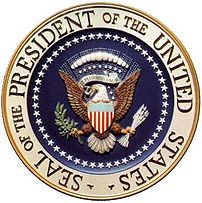
![Reblog this post [with Zemanta]](http://img.zemanta.com/reblog_e.png?x-id=87329bc5-8af3-485c-a46b-b39aeacc5de2)

![Reblog this post [with Zemanta]](http://img.zemanta.com/reblog_e.png?x-id=a4d86477-5f77-4a59-9582-a741135f42ca)

![Reblog this post [with Zemanta]](http://img.zemanta.com/reblog_e.png?x-id=279126a4-b01c-49f9-8fba-83741fdb610d)

![Reblog this post [with Zemanta]](http://img.zemanta.com/reblog_e.png?x-id=e8450907-a67b-4d55-976c-e5144d44e297)
![Reblog this post [with Zemanta]](http://img.zemanta.com/reblog_e.png?x-id=3953e624-ef31-493c-98f9-7cdbe21ea295)
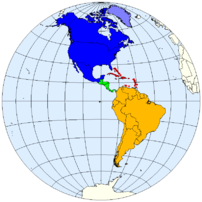
![Reblog this post [with Zemanta]](http://img.zemanta.com/reblog_e.png?x-id=21e59799-7603-4096-b89b-94fff1e43694)

![Reblog this post [with Zemanta]](http://img.zemanta.com/reblog_e.png?x-id=0b7c0b8f-7030-4dac-b10f-223fb6163811)

![Reblog this post [with Zemanta]](http://img.zemanta.com/reblog_e.png?x-id=ae35f310-05e4-49b8-a9b3-2a4d64a57016)

![Reblog this post [with Zemanta]](http://img.zemanta.com/reblog_e.png?x-id=3e9153d6-5b3e-40e0-92ec-e806d2c1f88e)

![Reblog this post [with Zemanta]](http://img.zemanta.com/reblog_e.png?x-id=e41a1230-64e1-4b0b-a966-9e13f4e2bff8)
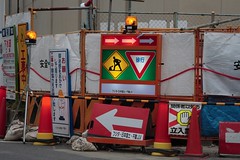
![Reblog this post [with Zemanta]](http://img.zemanta.com/reblog_e.png?x-id=e89944d2-4481-4298-b58e-c240584d813a)

![Reblog this post [with Zemanta]](http://img.zemanta.com/reblog_e.png?x-id=11d41848-07b3-4de9-9749-f40f7918f742)

![Reblog this post [with Zemanta]](http://img.zemanta.com/reblog_e.png?x-id=50b40b57-75aa-4b0f-8f67-abdd61be63cb)
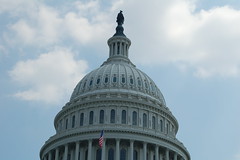
![Reblog this post [with Zemanta]](http://img.zemanta.com/reblog_e.png?x-id=7977c7fb-21df-489a-9a27-9c35f1e25510)

![Reblog this post [with Zemanta]](http://img.zemanta.com/reblog_e.png?x-id=f9f10c98-3057-494e-9193-93a5786f4b27)

![Reblog this post [with Zemanta]](http://img.zemanta.com/reblog_e.png?x-id=a5fd7b5c-34d9-4c92-a790-017311a95dbc)

![Reblog this post [with Zemanta]](http://img.zemanta.com/reblog_e.png?x-id=911303fd-7224-4c97-84aa-2fa344bdc1cc)

![Reblog this post [with Zemanta]](http://img.zemanta.com/reblog_e.png?x-id=eabfdb26-9e9e-421d-b562-1aebc79ecc20)

![Reblog this post [with Zemanta]](http://img.zemanta.com/reblog_e.png?x-id=5f03ae05-4c95-4458-b401-f2a19409f4ff)

![Reblog this post [with Zemanta]](http://img.zemanta.com/reblog_e.png?x-id=04028b62-b3f4-4b65-b18e-e0c098265bd6)
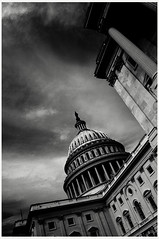
![Reblog this post [with Zemanta]](http://img.zemanta.com/reblog_e.png?x-id=f09b2b4f-3f33-4cb0-b3b8-ef6fa686fe8e)

![Reblog this post [with Zemanta]](http://img.zemanta.com/reblog_e.png?x-id=2846f10c-b177-4714-9dd7-2631460a28df)

![Reblog this post [with Zemanta]](http://img.zemanta.com/reblog_e.png?x-id=8bd7cfb9-6312-4c45-988a-f374ba33d364)






